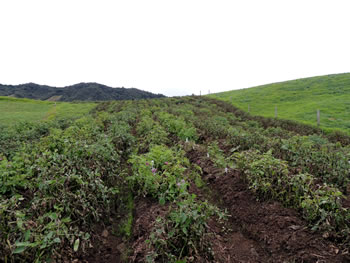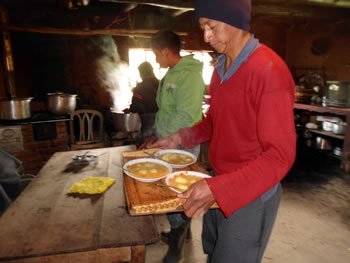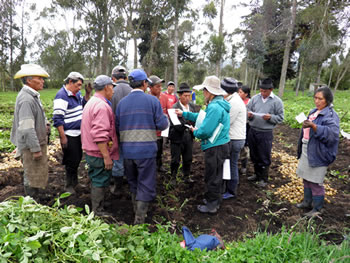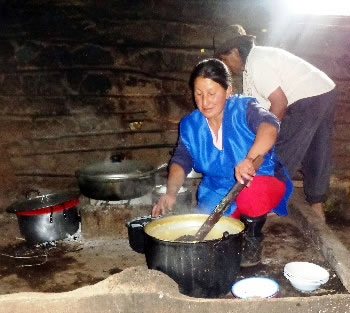
El componente busca contribuir al mejoramiento de la Seguridad Alimentaria y Nutricional (SAN) en las comunidades nativas (indígenas y campesinas) del departamento de Nariño en los municipios de Tuquerres, Guachucal, This component aims to contribute to the improvement of the Food and Nutrition Security (SAN) in native communities (indigenous and peasant) of the department of Nariño, in the municipalities of Tuquerres, Guachucal, Carlosama, and the rural area of Pasto; in their specific objectives include characterization of the intake and the pattern of household consumption, determining the nutritional status of children under 12, as measured by anthropometry, through making weight and height, and the approach to measuring household food insecurity, using the first five ELCSA questions, which measures perceptions of food insecurity of households from access.
In this component a qualitative approach to collect traditional practices around the home garden or chagra, and ancestral preparations and traditional uses of food are also performed and a clinical study that seeks to establish relationship in yellow potato consumption and enhanced plasma iron level in children 2 to 5 years, in programs of institutional care by ICBF, in the interest of generating results to support the use of improved species as alternatives to improve the diet of the native people, who are interested in the project.
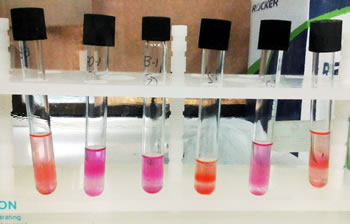 The nutritional quality component aims to assess the nutritional composition of potato. To perform this objective, the following analysis are performed: Proximal assessment (moisture, protein and ash), sugars, starch type, minerals, vitamin C and functional compounds (hydroxycinnamic acids, anthocyanins and carotenoids). These assessment are basic to select potato genotypes for their nutritional quality.
The nutritional quality component aims to assess the nutritional composition of potato. To perform this objective, the following analysis are performed: Proximal assessment (moisture, protein and ash), sugars, starch type, minerals, vitamin C and functional compounds (hydroxycinnamic acids, anthocyanins and carotenoids). These assessment are basic to select potato genotypes for their nutritional quality.



